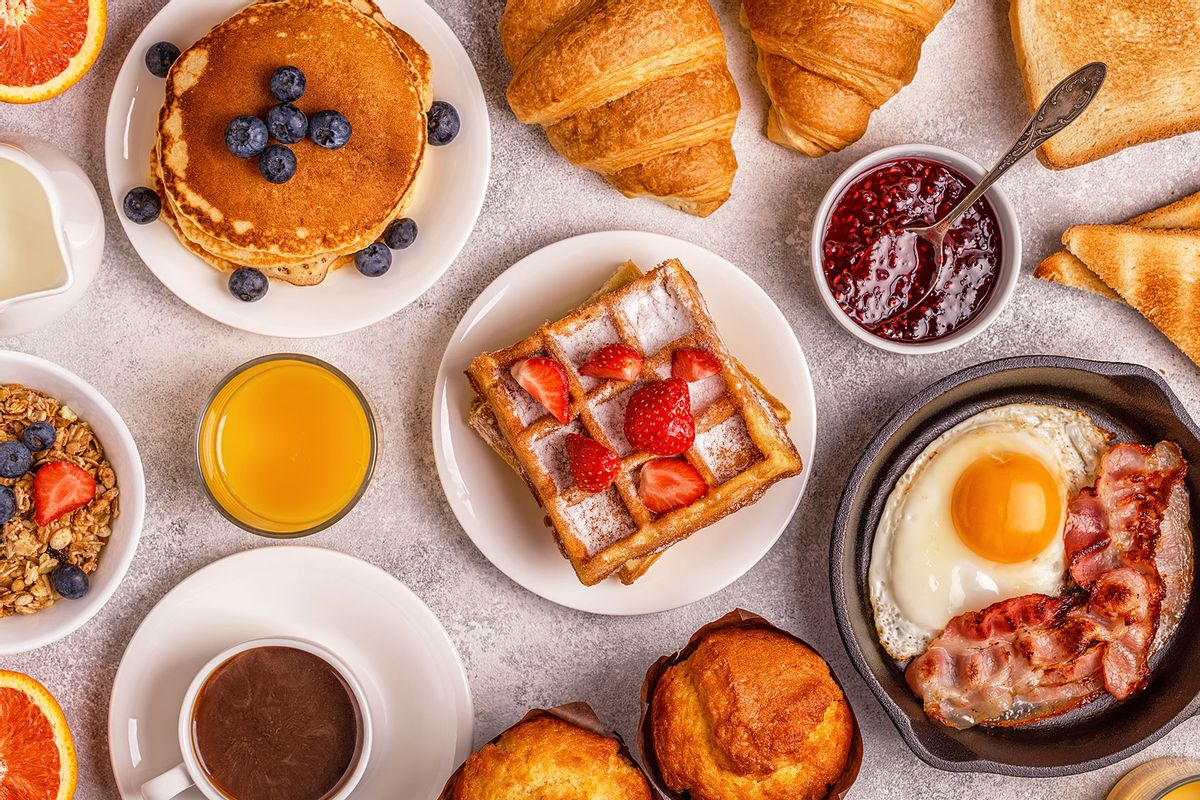It's the midday meal you enjoy for endless platters of chicken and waffles, fresh pastries and omelets. It's the perfect time to share hot gossip while sipping on bottomless mimosas. And, it's typically eaten as a recovery meal on weekend mornings to cure the hangover from the night before.
After all, it's brunch we're talking about! For many, brunch is more than just a meal or a weekend pastime — it's a tradition, a routine and a lifestyle. But how exactly did brunch come about? And how did it rise to popularity over the years?
The portmanteau of "breakfast" and "lunch" was first coined in 1895, thanks to Guy Beringer, a British writer who penned an article titled "Brunch: A Plea" in Hunter's Weekly. Beringer envisioned brunch to be a time for good food — eggs, coffee and sweet desserts, just to mention a few — and good company. Essentially, it would be a meal that sparked nothing but joy. He wrote:
"By eliminating the need to get up early on Sunday, brunch would make life brighter for Saturday-night carousers. It would promote human happiness in other ways as well. Brunch is cheerful, sociable and inciting. It is talk-compelling. It puts you in a good temper, it makes you satisfied with yourself and your fellow beings, it sweeps away the worries and cobwebs of the week."
In the United States, the term "brunch" was first used in an 1896 edition of the New Oxford Item. Brunch was known as "the latest 'fad'" and "a repast at 11 o'clock a.m." A few years later, brunch was described by New York newspaperman Frank Ward O'Malley as "the typical mid-day eating habits of a newspaper reporter."
By the 1920s — amid prohibition — brunch became associated with daytime drinking culture. Cocktails, which easily masked the presence of alcohol with juices and other sweet beverages, quickly became staple drinks of choice. Thus inspired the creation of several signature brunch cocktails, including the Bloody Mary, Bellini and Mimosa.
"In the early to mid 1900s, brunch offered a platform for people to drink during the day in a socially acceptable fashion," per The Washington Post. Even though drinking culture was initially reserved for the upper class, that changed in the 1970s, when daytime drinking "loosened the negative stigma," making it more normal for members of the middle class and women to partake in.
By the 1930s, brunch became a major hit nationwide, encouraging The New York Times to declare Sunday "a two-meal day." Brunch was also commonly served during transcontinental train trips, which included a customary transfer in Chicago and a "glamorous meal in the late morning/early afternoon," as mentioned by Bustle. A 1983 New York Times article added that brunch was especially popular at the famous Pump Room in Chicago's Ambassador Hotel in 1933. There, brunch "was as much a scene as lunch at the Four Seasons is today," according to food writer and "American Food: The gastronomic story" author Evan Jones.
Soon enough, brunch-specific cookbooks began cropping up. And by the twentieth century, Americans began brunching on both Saturdays and Sundays.
Want more great food writing and recipes? Subscribe to Salon Food's newsletter, The Bite.
Today, brunch remains a pricey yet popular affair, particularly in cities like New York, San Francisco, Chicago and Denver. But amongst chefs and former brunch-goers, the meal is deemed a nuisance. As food and drink journalist Maggie Hennessy wrote for Salon, "Brunch by definition bridges breakfast and lunch, meaning no sane person would ever meet for brunch at 9 or 10 am, before it scientifically starts existing. (Let's face it; even 10:30 feels optimistic.)"
"Thus, I find myself starving on a Saturday or Sunday morning, playing breakfast roulette while on a text chain with my slow-moving friends who swear we're meeting at 10 this time," she added. "Should I sneak in a bowl of cereal in case one of these loafers doesn't make the reservation?"
Perhaps brunch has indeed become overrated. But there's no denying that it's also quite tasty — and a great excuse to enjoy drinks before the start of a new week.



Shares